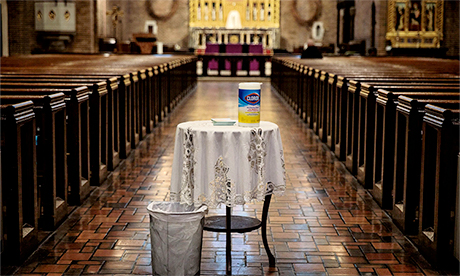Last summer I underwent radiation treatment. And every time I passed through the doorway marked “Radiation Oncology,” my heart seemed to skip a beat.
While I was in little danger (my tumour was benign, and, yes, one sometimes needs radiation for that), I daily met people who were close to death.
Every weekday for six weeks I would hail a cab and say, “68th and York, please.”
Once there, I would stop into a nearby church to pray.
Afterwards, walking to my appointment in a neighbourhood jammed with hospitals, I passed cancer patients who had lost their hair, exhausted elderly men and women in wheelchairs pushed by home health care aids, and those who had just emerged from surgery.
But on the same sidewalks were busy doctors, smiling nurses and eager interns, and many others in apparently perfect health.
One day it dawned on me: We’re all going to 68th and York, though we all have different times for our appointments.
In just the past few weeks, millions have started to fear that they are moving to their appointment with terrifying speed, thanks to the Covid-19 pandemic.
The sheer horror of this fast-moving infection is coupled with the almost physical shock from its sudden onset.
As a priest, I’ve heard an avalanche of feelings in the last month: panic, fear, anger, sadness, confusion and despair.
More and more I feel like I’m living in a horror movie, but the kind that I instinctively turn off because it’s too disturbing.
And even the most religious people ask me: Why is this happening? And: Where is God in all of this?
The question is essentially the same that people ask when a hurricane wipes out hundreds of lives or when a single child dies from cancer.
It is called the “problem of suffering,” “the mystery of evil” or the “theodicy,” and it’s a question that saints and theologians have grappled with for millenniums.
The question of “natural” suffering (from illnesses or natural disasters) differs from that of “moral evil” (in which suffering flows from the actions of individuals — think Hitler and Stalin).
But leaving aside theological distinctions, the question now consumes the minds of millions of believers, who quail at steadily rising death tolls, struggle with stories of physicians forced to triage patients and recoil at photos of rows of coffins: Why?
Over the centuries, many answers have been offered about natural suffering, all of them wanting in some way. Continue reading
Additional readingNews category: Analysis and Comment.




